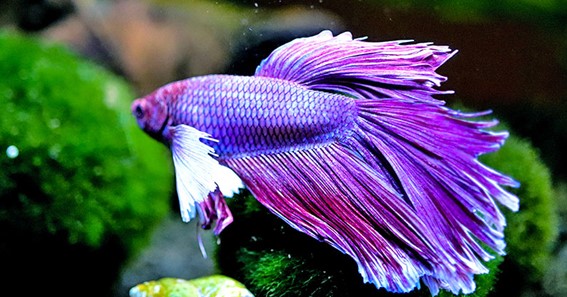Giving birth is a magical and rewarding experience for any animal, and betta fish are no exception. Betta fish pregnancy is a fascinating journey and they can give birth in as little as two weeks. As with any other animal, it is important to understand what to expect and how long are betta fish pregnant during the birthing process.
Betta fish typically carry their eggs in their mouths and can take anywhere from two to four weeks to give birth. During pregnancy, you should watch out for signs of stress and provide a comfortable, safe environment for the fish. Knowing what to look for and how to help will ensure the safety of your betta fish and their offspring.
How Long Does a Betta Fish Take to Give Birth?
The length of a betta fish pregnancy can vary depending on the care the fish receive and the fish themselves. For the most part, betta fish pregnancies last anywhere from two to four weeks. However, in some cases, betta fish can carry their eggs for as long as six weeks before giving birth.
There are times when a female betta fish may not show any signs of being pregnant and then suddenly give birth. Betta fish pregnancies can be unpredictable and you never know exactly when they will give birth. If you suspect your betta fish is pregnant, it’s best to be prepared for the birthing process.
Signs of Pregnancy in a Betta Fish
If your betta fish is pregnant, you may see signs of this as early as two weeks into the pregnancy. The first sign of a pregnant betta fish is the male swimming closely behind the female. You may also notice the female betta fish showing signs of swelling near her caudal fin. As the pregnancy progresses, you may see the female betta fish dropping eggs.
Because the eggs are being kept in the mouth of the female, you may also see her spitting out small amounts of white, foamy liquid. This is not to be confused with the betta fish regurgitating food. The pregnant betta fish may also start to rest more frequently and eat significantly less than usual. This can be a common sign of pregnancy in many animals and is something to keep an eye out for.
Preparing for Betta Fish Birth
Because each betta fish pregnancy is different, there is no way to tell exactly when your fish will give birth. However, there are a few things you can do to be prepared for the birthing process. First, you should set up a separate tank for the pregnant betta fish. This tank should be one-quart in size and have an air pump. The air pump will help keep the water oxygenated and the tank clean.
You should also supply your pregnant betta fish with plenty of clean, fresh water and a few hiding places in the tank. Make sure to remove any gravel or other substances that could be harmful to the pregnant fish. After the birthing process, this tank will also be useful for raising the fry. When the pregnant betta fish are about to give birth, it is a good idea to set up the tank ahead of time and make sure the water is clean and ready for the fry.
Betta Fish Giving Birth
It is important to remember that while betta fish give birth to live young, they are not able to care for their young. Therefore, it is important to be ready and prepared to take care of the fry after they are born. You can expect to see the pregnant betta fish begin to swim toward the surface of the water. After this occurs, it is recommended that you gently take the female betta fish out of the tank and place her into a separate container.
This will make it easier to collect the eggs, as they will be near the surface of the water. You can use a small net or a spoon to collect the eggs and place them into a container. Once this is done, you should immediately return the female betta fish to the tank. This is to ensure that the other fish in the tank don’t eat the eggs that have been released.
Caring for Fry After Betta Fish Gives Birth
After the betta fish give birth, you need to make sure the fry is properly cared for. Begin by adding an air stone to the container that holds the newborn fry. This will help add oxygen to the water and make it easier for the fry to swim. You can also add some Betta Bio-Gold to the water. This product was specially designed to help young betta fish.
It will help make the water more nutritious and promote growth. The container that holds the newborn fry should be kept out of direct sunlight and at a temperature between 75 and 80 degrees Fahrenheit. You should feed the fry Betta Bio-Gold and be sure to clean out the container every few days.
